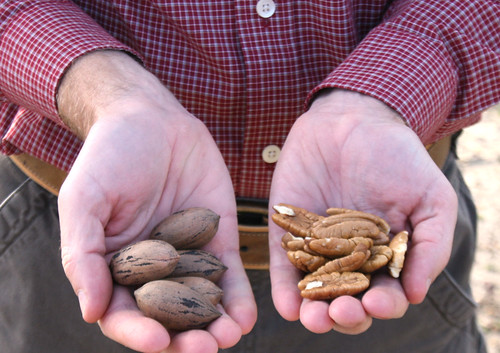
A strong rural economy benefits the whole nation. Sales of specialty crops – which include everything from fruits and vegetables to tree nuts, cut flowers and nursery crops – total nearly $65 billion per year. The success of specialty crop farmers and businesses creates opportunities for new jobs and is critical to the rural economy. That’s why my agency, USDA’s Agricultural Marketing Service (AMS), is partnering with states to support the hardworking American farmers who grow these products.
This week Secretary Tom Vilsack announced millions of dollars in grant funding authorized through the 2014 Farm Bill, including $66 million in Specialty Crop Block Grants (SCBG) awarded by AMS. The goal of the SCBG program is to promote and increase opportunities for specialty crop producers by supporting projects that create new business opportunities, boost productivity and improve food safety. Every state department of agriculture receives a block grant that it can use to fund projects that support its specific priorities. This year’s specialty crop block grants fund 838 projects across all 50 states, the District of Columbia and four U.S. territories.
Partnerships between USDA and state agencies are vital to keeping American agriculture competitive. AMS works closely with states and encourages them to reach out to specialty crop stakeholders to develop priorities. For example, the Georgia Department of Agriculture can fund projects that help pecan growers manage, harvest, transport and market their products. While this specialty crop may not be a top priority on a national level, it contributes hundreds of millions of dollars to the rural economy of Georgia. This partnership between USDA and states ensures that resources go to where the states need them most.
The Michigan Department of Agriculture and Rural Development used 2009 SCBG funds to increase sales opportunities for fruit and vegetable farmers in Southeast Michigan. A nonprofit group is spearheading the project that also involves farm organizations, food industry representatives, community groups, food system and economic development experts and resource providers. Together, they were able to identify and overcome barriers that previously prevented schools from purchasing products directly from local farmers, ultimately increasing the sales of apples, cucumbers, peppers, red potatoes, broccoli and several other crops within their state.
Another 2009 grant in Idaho established a partnership between the state department of agriculture and Boise State University-Tech to provide food safety workshops and implement sustainable production practices for onions, potatoes, apples, cherries, peas and lentils. The project resulted in higher audit scores and increased efficiency for participating companies, which both improved consumer confidence and helped producers’ bottom lines.
These are just a few examples of success resulting from a decade of SCBG partnerships—all of which showcase our commitment to supporting America’s specialty crop producers and small businesses.
